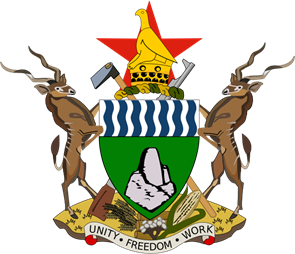Introduction
Climate change is a pressing reality that presents significant challenges to human life, requiring immediate and sustainable responses. According to recent research, increased carbon dioxide concentrations in the atmosphere, driven by anthropogenic activities such as fossil fuel burning, contribute significantly to climate change. Sustainable practices that reduce atmospheric carbon concentrations have been highlighted as critical measures to mitigate the effects of climate change. Forest ecosystems play a pivotal role in this process due to their carbon sequestration potential.
Background
Healthy forests are essential in the terrestrial carbon cycle, capturing and storing large amounts of atmospheric carbon in vegetation, forest biomass, and soil. These natural ecosystems provide crucial services to the environment and society, including climate regulation, economic benefits, and cultural values. Mature and intact forests hold the densest carbon stocks and offer a range of additional benefits to human communities and the environment. In addition, preserving existing forests is more advantageous for carbon sequestration than planting new trees, as young trees require many years to accumulate significant carbon dioxide.
Zimbabwe is a member of the international Reducing Emissions from Deforestation and Forest Degradation and Enhancement of Carbon Stocks through Forest Conservation and Management (REDD+) initiative. This program aims to maintain existing forests by implementing sustainable management strategies and enhancing carbon sequestration through afforestation, reforestation, and restoration of degraded forest land.
Forest loss or degradation leads to increased atmospheric carbon concentrations and a loss of essential ecosystem services provided by forests. Therefore, understanding and addressing the drivers and restraining forces in the social-ecological system is crucial for protecting forest ecosystems' health and mitigating climate change's negative effects.
Discussion
While local institutional arrangements encourage the conservation of forests in the three wards of Murehwa District, the ecosystems face significant challenges. The region's communities depend heavily on forests for firewood, agricultural land, and fencing materials, leading to resource overexploitation. This overdependence hinders formal and informal institutions' ability to conserve forests and manage usage patterns.
The need for survival, coupled with desperation, poverty, and a lack of alternative fuel sources, further exacerbates the degradation of forests. Even with efforts from the Environmental Management Agency (EMA) to limit illegal extraction, lack of resources hampers effective management. As a result, co-management mechanisms involving local communities, leaders, and government agencies struggle to protect forests.
Despite the knowledge of the short- and long-term impacts of overexploitation, individuals continue to exploit resources due to economic necessity and inadequate opportunities for legitimate activities. This overexploitation threatens the ecological integrity and regenerative capacity of forests, compromising their potential for climate change mitigation.
Community involvement and collective action are crucial for sustainable resource management, as demonstrated by the control of invasive species and enforcement of forest management regulations. However, these efforts fall short in the face of growing invasive species and inconsistent compliance with regulations. Poachers take advantage of weak enforcement and low apprehension risks, further threatening forest health.
Shortages of rainfall impede natural forest regeneration, creating an imbalance between forests' regenerative capacity and exploitation patterns. Communities prioritize short-term economic gains over long-term sustainability, placing forests in a vulnerable position. The failure of forests to regenerate naturally, combined with high exploitation rates, poses a significant threat to the region's forest ecosystems.
Conclusion
Despite the presence of co-management arrangements and community involvement in forest conservation, Murehwa District's forests remain threatened. Sustainable management of natural resources requires addressing the drivers and restraining forces in the social-ecological system that influence forest health. By focusing on these factors, it may be possible to protect forests and enhance their potential for climate change mitigation.


